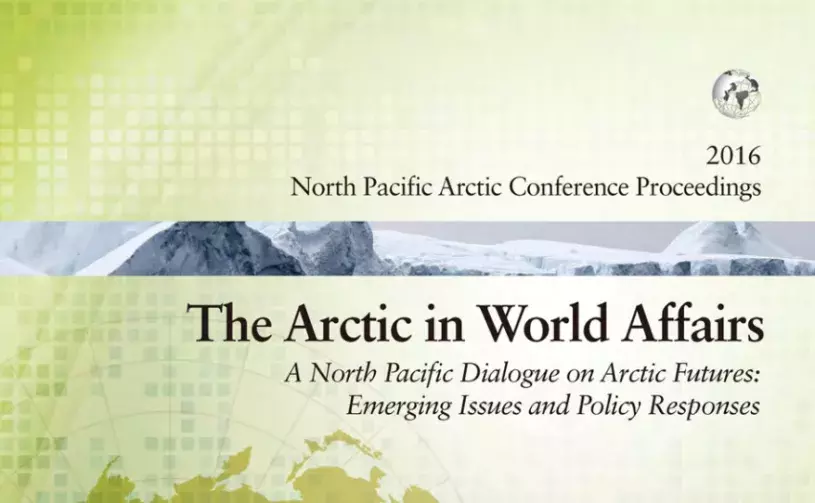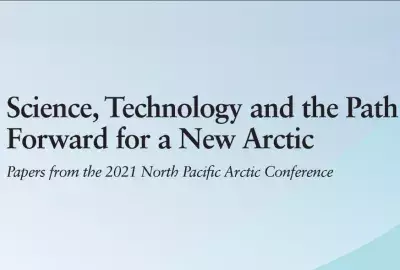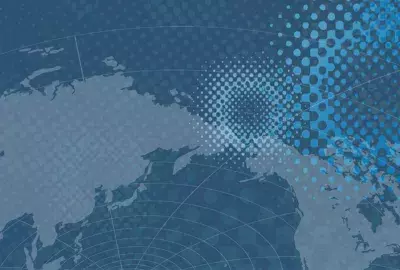Error message

The Arctic in World Affairs: A North Pacific Dialogue on Emerging Arctic Issues and Policy Responses addresses four major themes in the book: (1) Arctic policies in a global context; (2) implications of the Paris agreement for the Arctic; (3) the future of the Arctic Ocean, and (4) Arctic natural gas in a global context. The contributions of prominent experts from the three North Pacific Arctic coastal states (Canada, Russia, and the United States) and three leading North Pacific non-Arctic states (China, Japan, and Korea) go beyond generalities, as they identified and assessed the effectiveness of innovative measures that potentially contribute to sustaining the Arctic as a zone of peace and promoting sustainable development in this region.
In the section on Arctic policies in a global context, seven perspectives are presented concerning how the three North Pacific Arctic countries, the three North Pacific non-Arctic countries, and the Inuit Circumpolar Council describe the Arctic through a lens of a rapidly changing climate system.
In the section on implications of the Paris agreement for the Arctic, there are five perspectives that explore the implications of the Paris Agreement on climate change for the Arctic, from three Arctic Council states, a non-Arctic state, and from an Arctic indigenous community on implications for them of the Paris Agreement on climate change for the Arctic.
In the section on the future of the Arctic Ocean, seven interdisciplinary perspectives on the future of the Arctic Ocean were presented, with particular reference to Arctic and Subarctic fisheries, shipping along both the Northern Sea Route and the Transpolar Route, as well as ship-based tourism.
In the section on Arctic natural gas in a global context, seven perspectives on major factors influencing Arctic gas development through 2040 were presented, with particular reference to technological innovations and infrastructure, China-Russia relations, Russia's priorities and constraints, international climate policies, fuel choice for power generation, global gas supplies, and energy policies of major LNG importers.
The Arctic in World Affairs: A North Pacific Dialogue on Emerging Arctic Issues and Policy Responses addresses four major themes in the book: (1) Arctic policies in a global context; (2) implications of the Paris agreement for the Arctic; (3) the future of the Arctic Ocean, and (4) Arctic natural gas in a global context. The contributions of prominent experts from the three North Pacific Arctic coastal states (Canada, Russia, and the United States) and three leading North Pacific non-Arctic states (China, Japan, and Korea) go beyond generalities, as they identified and assessed the effectiveness of innovative measures that potentially contribute to sustaining the Arctic as a zone of peace and promoting sustainable development in this region.
In the section on Arctic policies in a global context, seven perspectives are presented concerning how the three North Pacific Arctic countries, the three North Pacific non-Arctic countries, and the Inuit Circumpolar Council describe the Arctic through a lens of a rapidly changing climate system.
In the section on implications of the Paris agreement for the Arctic, there are five perspectives that explore the implications of the Paris Agreement on climate change for the Arctic, from three Arctic Council states, a non-Arctic state, and from an Arctic indigenous community on implications for them of the Paris Agreement on climate change for the Arctic.
In the section on the future of the Arctic Ocean, seven interdisciplinary perspectives on the future of the Arctic Ocean were presented, with particular reference to Arctic and Subarctic fisheries, shipping along both the Northern Sea Route and the Transpolar Route, as well as ship-based tourism.
In the section on Arctic natural gas in a global context, seven perspectives on major factors influencing Arctic gas development through 2040 were presented, with particular reference to technological innovations and infrastructure, China-Russia relations, Russia's priorities and constraints, international climate policies, fuel choice for power generation, global gas supplies, and energy policies of major LNG importers.







